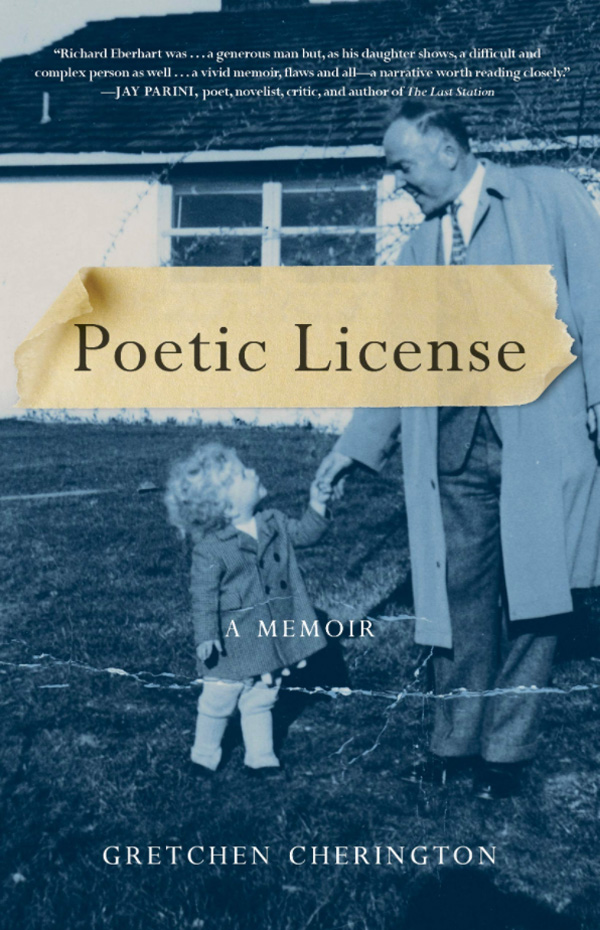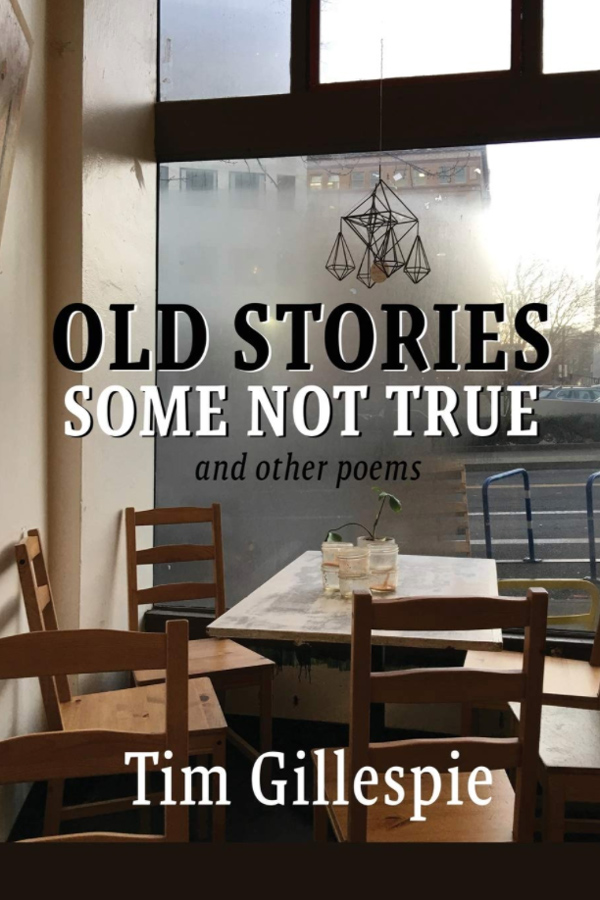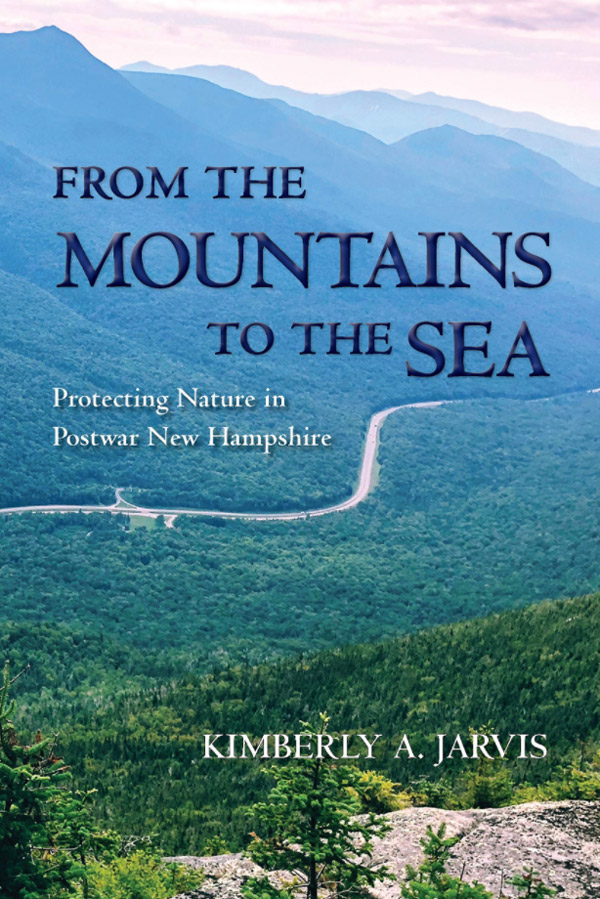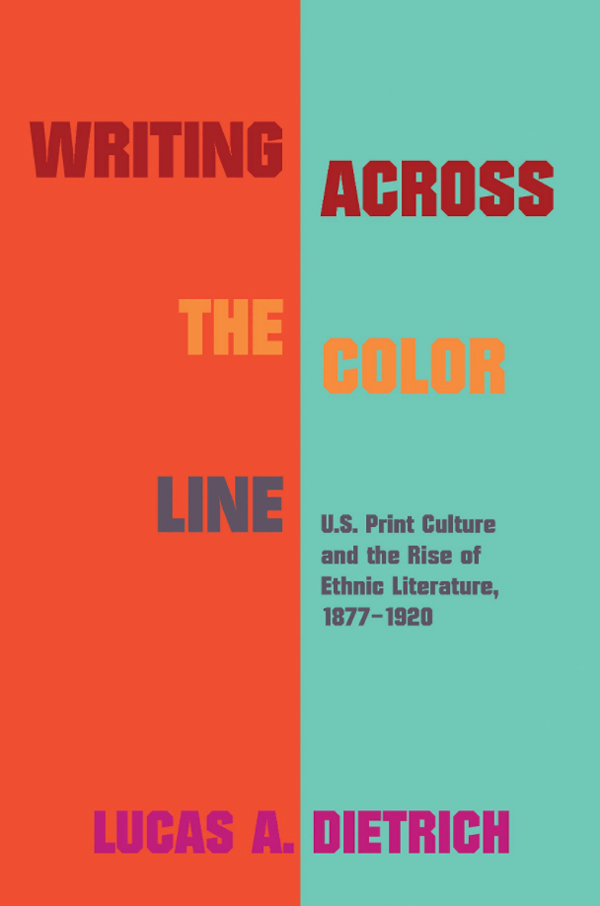

She Writes Press
August 2020
n the surface, Gretchen Cherington’s childhood was the stuff of idyll. Growing up in Hanover, New Hampshire, she’d regularly come home from school to find literary luminaries such as Robert Frost, Robert Lowell, Allen Ginsberg and Anne Sexton visiting with her equally famous father, Dartmouth professor and New Hampshire poet laureate Richard Eberhart. She spent summers at Undercliff, a Maine cottage at the edge of Penobscot Bay, where her father piloted a boat called Reve and she and her brother Dikkon annually reenacted their parents’ love story to an indulgent beachfront crowd. There were also two years in Washington, D.C., while her father served as the poet laureate of the United States, and a year in Lausanne, Switzerland, where a 16-year-old Cherington traveled to study and perfect her French.
A remarkable new entry into the canon of some 700 books, biographies, lectures, essays and articles about Richard Eberhart, “Poetic License” is at once a profoundly personal story and an illuminating meditation on privileged and famous men and the reasons their bad behavior is so frequently allowed.

Moon Path Press
May 2020
University of Massachusetts Press
June 2020
any UNH alumni are familiar with the story of Greek shipping magnate Aristotle Onassis’ 1973 efforts to build a massive oil refinery on Durham’s Great Bay coastline, and the manner in which a feisty group of local housewives rallied to thwart that effort. Fewer, however, might know that citizen activists similarly turned away threats to both Franconia and Sandwich Notches during the same era: in Franconia, from a proposal to run Interstate 93 through Franconia Notch at the foot of the famous “Old Man of the Mountain,” and in Sandwich, from a massive development project that would forever alter the Granite State’s so-called last “wild and lovely place.” In “From the Mountains to the Sea,” Jarvis, a professor of history at Nebraska’s Doane University who earned her doctorate at UNH, unpacks these three episodes and how history, memory and tradition created a strong sense of place that informed locals’ efforts to protect these prized natural areas from development in the face of increasing pressures from business and government in the decades following World War II.


University of Massachusetts Press
June 2020
any UNH alumni are familiar with the story of Greek shipping magnate Aristotle Onassis’ 1973 efforts to build a massive oil refinery on Durham’s Great Bay coastline, and the manner in which a feisty group of local housewives rallied to thwart that effort. Fewer, however, might know that citizen activists similarly turned away threats to both Franconia and Sandwich Notches during the same era: in Franconia, from a proposal to run Interstate 93 through Franconia Notch at the foot of the famous “Old Man of the Mountain,” and in Sandwich, from a massive development project that would forever alter the Granite State’s so-called last “wild and lovely place.” In “From the Mountains to the Sea,” Jarvis, a professor of history at Nebraska’s Doane University who earned her doctorate at UNH, unpacks these three episodes and how history, memory and tradition created a strong sense of place that informed locals’ efforts to protect these prized natural areas from development in the face of increasing pressures from business and government in the decades following World War II.


University of Massachusetts Press
July 2020
he turn of the 20th century was a period of experimental possibility for writers of color in the United States as they began to collaborate with the predominantly white publishing trade to make their work commercially available. In “Writing Across the Color Line,” Dietrich, who earned his doctorate in English from UNH and now teaches at Lesley University, analyzes publishers’ and writers’ archives to show how authors including María Amparo Ruiz de Burton, Charles W. Chesnutt, Finley Peter Dunne, W. E. B. Du Bois and Sui Sin Far drew readers into their texts by subverting existing stereotypes and adapting styles of literary regionalism and dialect writing.